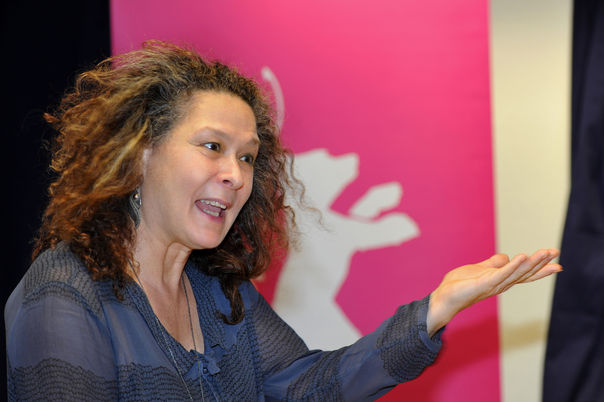Editing as an Act of Killing
By Richard Bolisay

Susan Korda at her talk Kill Your Darlings
Before starting her talk, director and editor Susan Korda asks the audience about their backgrounds. It is a crowd made up of producers, directors, writers, cinematographers, composers, and, of course, editors, who have come to her lecture at the Berlinale Talents entitled “Kill Your Darlings,” which emphasises the role of editing in making good cinema. Although seen as essential in the filmmaking process, editing comes with established but old-fashioned rules that have been strictly followed by professionals over the years. Korda mentions these misconceptions, particularly the uncompromising adherence to continuity and match cutting, as well as some producers’ penchant for having a clear story and logical character motivations.
Without undermining the importance of these traditional ideas, she argues that breaking the rules does not necessarily mean inefficiency. To illustrate, Korda shows clips from BONNIE AND CLYDE (Arthur Penn) and JAWS (Steven Spielberg) and points out each film’s non-traditional yet effective presentation of the story. “Did we care about the lack of continuity here? Did we care about the jump cuts over there? Did we care about this scene missing a close-up? No, because we were hooked to the moment, and that’s more than enough”, she says. Korda also emphasised that “Editing is not visual: it is emotional, it is musical.” She decries the habit of showing too much surface detail, as for her “the problem with showing is inherently talking down to [the audience].” When viewers are conditioned to always accept by-the-book storytelling, the moviegoing experience becomes limited, and the result deprives the viewer of the many pleasures of cinema.
Guided by Walter Murch’s principle, Korda’s strongest advice to editors is to cut for the emotion, not for narrative logic. The emotion serves as the heartbeat of the film. When it is prioritized, the story will flow easily, and whatever shortcomings the film may have technically can be overlooked. Alluding to William Faulkner, she says it’s imperative to kill one’s darlings — to let go of those beautiful shots or scenes — if it means the film will benefit as a whole. “There is no such thing as a mistake in the editing room. Everything is always an opportunity,” Korda shares inspiring words that can go a long way in practice.

